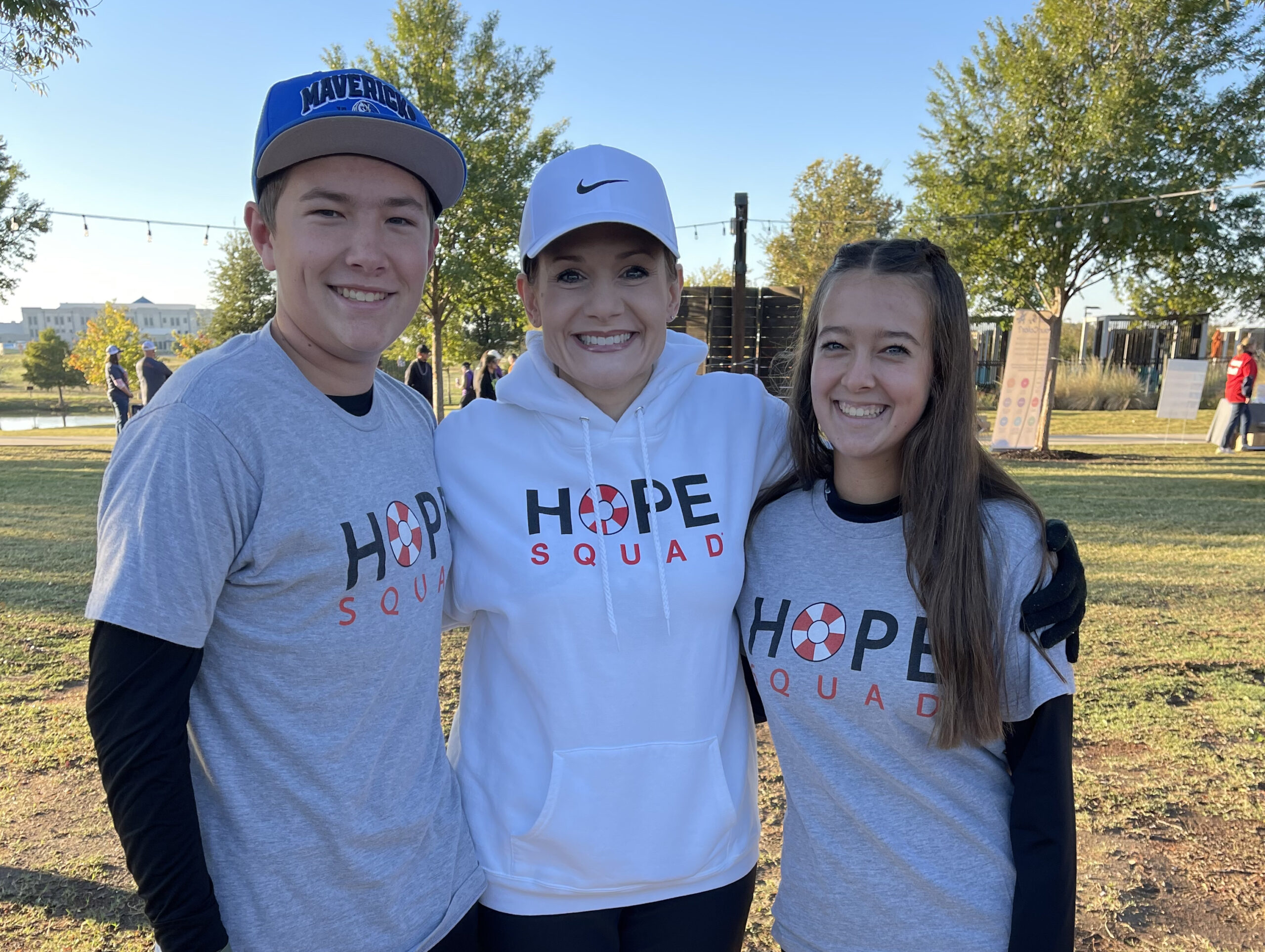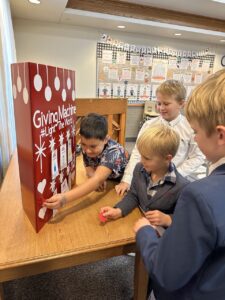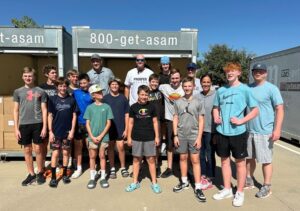A New Kind of Squad Is Here to Stay in Texas
Hope Squad Empowers Students to Make a Difference in Mental Health and Suicide Prevention
PROSPER, TEXAS – You have heard of a squad of soldiers, a bomb squad, and a cheerleading squad, but have you heard of Hope Squad? You probably know “mom squad” or “my squad” from popular culture, denoting a close-knit group of friends with common interests or purposes. In most of these cases, the grouping suggests exclusivity due to special training and talents or a mutual understanding. That is what makes Hope Squad so unique: it is a group of students engaged in a joint effort to spread courage, kindness, and – counterintuitively – inclusion.
Hope Squad Beginnings
The Hope Squad program was born in 1997 in Provo, Utah, out of a desire of Dr. Gregory A. Hudnall, a high school principal who had dealt with the loss of students to suicide during his tenure, to prevent any other children from taking their own lives. Over time and through various efforts to coordinate local educational and mental health resources, Dr. Hudnall realized the potential of positive peer-to-peer interactions. He thought if he could harness peer support, it might work to prevent suicides.
And it has. From the initial Hope Squad team formed at Timpview High School in Provo in 2004 to the more than 1,800 current Hope Squad schools across the United States and beyond, Hope Squad has been responsible for over 5,000 students referred for help and over 1,000 hospitalized. Timpview High, which was seeing about one suicide per year before Hope Squad’s implementation, is in its 18th year without a student suicide, says Hudnall.
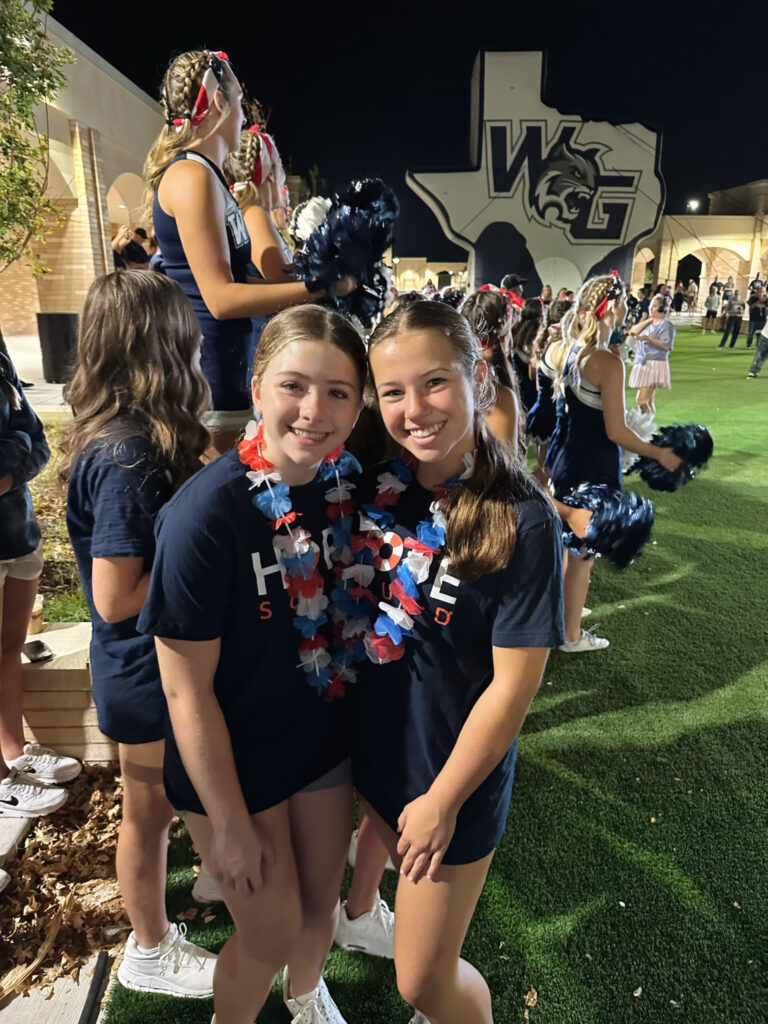
What is the secret? “One of our main goals,” says Maggie Stanton, a high school freshman, “is to ensure that no one ever feels alone.… We are known as people who anyone can go to if they need somebody to talk to. Kids can come to us if they feel alone, and that can make them feel safe.”
Jesse Johnson, a high school junior, adds, “Something I’ve learned about other people is my place in helping them. I need to be a good listener and make sure I understand what is wrong.”
Hope Squad Spreading Across Texas and Beyond
These students are part of the Hope Squad program at Prosper ISD, which was implemented in the 2019-20 school year after the district had lost three students to suicide between 2016-2018. Wendy Tyler’s son Christian was one of those students in 2016. She connected Dr. Holly Ferguson, then-associate superintendent of the district, to Cathy Bledsoe, who had worked closely with Dr. Hudnall to create the program in Utah. Ferguson embraced Hope Squad as an “answer that would change the hearts and minds of our students, staff, and parents about how talk can save lives,” she says.
All of Prosper’s elementary, middle, and high schools are included in the 220 public and private schools across the state of Texas that have implemented Hope Squad as a part of their curriculum and club offerings to students. Each Hope Squad comprises students who are consistently kind and willing to lend a listening ear, and they are nominated by teachers and peers.
Now the executive director of Hope4Utah, a nonprofit educational organization that specializes in suicide prevention, intervention, and postvention, Hudnall says, “The Jordan Elizabeth Harris Foundation were the first ones to bring us down to Texas” for the White Settlement ISD in Tarrant County. Hope Squads continue to bloom across 43 U.S. states, Canada, and South Korea, while seeds are being planted in Germany and Spain as well.
Impact on School Culture and Mental Health Stigma
As for Prosper ISD, Ferguson says that their goal for Hope Squad was to begin to change school culture. “We also wanted the stigma around mental health and suicide to change,” she says, “and for our community to be willing to begin conversations on how we could all support one another.” She calls the results “phenomenal… [with] immediate changes in our students’ behaviors.”
Stanton underscores that immediate change and perspective shift: “I’ve learned so many things so far just by being in the class for only a few months…. We learned that you can never actually put the idea of suicide in someone’s mind. If you’re truly worried about someone and think they might attempt suicide, talk to them about it because you’d rather be safe.”
Hope Squad: Teaching Care, Service, and Support
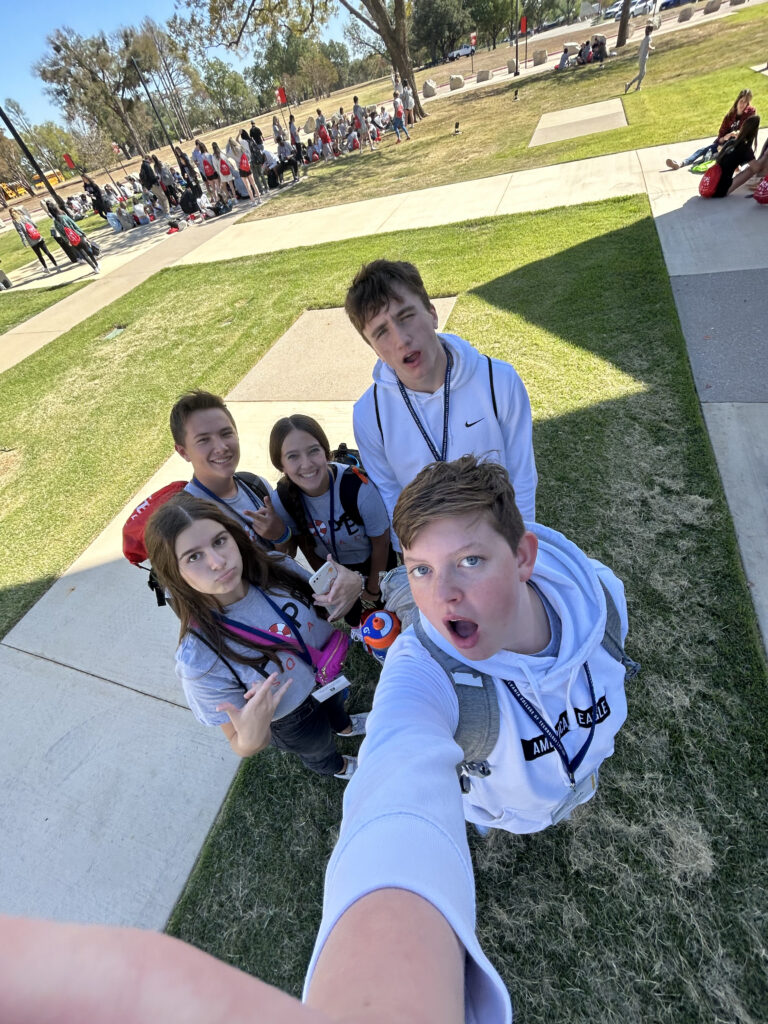
Jonah Reed, a high school junior in Prosper, says, “Hope Squad teaches to care and to serve…. Charity, which is the pure love of Christ, is service and putting others before self. I feel Hope Squad is service in action.” Like Stanton and Johnson, Reed is a member of The Church of Jesus Christ of Latter-day Saints and seeks to live a Christlike life.
One action these three students and their Hope Squad friends are taking on November 4 is participating in the 7th annual Out of the Darkness Denton & Collin County Walk sponsored by the American Foundation for Suicide Prevention (AFSP). This community event, first brought to Prosper by Bruce and Wendy Tyler in 2017, focuses on supporting families who have lost loved ones to suicide and remembering the individuals’ life journeys.
Johnson has participated in past walks, sharing that he honored a cousin and her family. “I find it very significant that the people who are there feel loved because they have lost someone close to them and many of them feel alone,” he says. “The walk helps show that they aren’t alone.”
Lifelong Impact and the Ripple Effect
Ferguson, who now serves on the National Educational Advisory Board for Hope Squad in addition to her superintendent duties with the district, says, “Our prayer for our students is that our programs will have a lifelong impact. The skills our students learn not only help them today but into the future.” The ISD aims to have new students join Hope Squad every year. Graduates of Prosper ISD have shared with her that they were able to help friends, roommates, and family members with various mental health issues because of their education through Hope Squad. The “ripple effect”, as Ferguson puts it, and her desire to “grow the circle of support” across all campuses and beyond are working.
Reed talks about what Hope Squad means to him. “Hope means that things can get better, that everyone needs to know that struggles and problems are temporary,” he says. “Squad means we are all together. No one should be excluded.”
Are you in a crisis?
Call or text 988 or text TALK to 741741
Feature photo: Jesse Johnson and Holly Ferguson at the Out of the Darkness Denton & Collin County Walk in November 2022. Left to Right: Jesse Johnson, high school junior; Dr. Holly Ferguson, Prosper ISD Superintendent of Schools; Jocelyn Johnson, high school junior. Photo provided by Angela Johnson.

